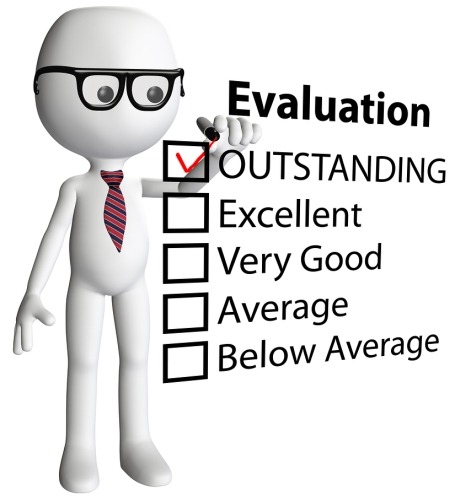
You’re a non-native English speaker.
You’d like to improve your pronunciation.
Yet you hold to a belief that it’s only possible under supervision of a professional accent reduction therapist because you can’t judge your own speech properly, isn’t that right?
Well, guess what?
Nothing could be further from the truth ❗
Not only you’re fully capable of judging your own English speech and making the necessary adjustments as you go along, but it’s also a crucial part of the whole accent reduction and pronunciation improvement thing!
I think the reason why you believe into this myth of the only real help being a highly paid professional is the following:
- You’ve tried speaking like an American or British English speaker on certain occasions;
- You’ve drawn the conclusion that you sound plain stupid as you try to imitate your target accent;
- You’ve drawn yet another conclusion that you just can’t make the right judgment in relation to your English speech and you need another person correcting it!
Now, let’s be clear on one thing, my friend.
I’m afraid you’ve made a big mistake by equaling your ability to evaluate your own speech WITH knowing what exactly you have to focus on when speaking!
They’re two entirely different things altogether, and while you indeed need someone to tell you HOW you should speak (and bear in mind – that someone doesn’t necessarily have to be a highly paid professional!), there’s no reason on Earth as to why you couldn’t judge your own English pronunciation against certain standards and then make the necessary adjustments as you go about your pronunciation practice!
Listen – Repeat – Adjust – Listen – Repeat – Adjust…
This is the super-effective formula for foreign accent reduction and native-like English pronunciation acquisition.
You may take accent reduction classes from a very reputable speech therapist and pay $70 per session, but you’ll still be following the same exact formula: listen – repeat – adjust – listen – repeat – adjust.
The point I’m trying to make here is that the “ADJUST” stage is always done by you.
ALWAYS ❗
Is your speech therapist getting into your mouth and pulling on your cheek muscles and lips and making you sound different? Of course he isn’t! At the end of the day it’s always YOU who adjusts your speech and tries to pronounce this or that particular English sound a little bit differently to match the original English sound.
So, tell me now how is adjusting your own speech under the supervision of another person any different from the job you’d be doing on your own?
You have to admit that the only difference is in the specialist telling you HOW you should pronounce the English word or sentence, and which sounds you should FOCUS upon, that’s all!
And you believe you can’t possibly pull it off all by yourself?
You believe you’re unable to compare what you just said during your accent practice session and decide which aspects of your speech require a little bit more work?
Give Yourself Some Credit, My Dear Non-native English Speaker!
If you really believe you just don’t have a good ear for pronunciation or you’re not smart enough to figure out how you have to pronounce American or British English sounds, then you’re really selling yourself short.
ANYBODY has this ability, and all you really need to do is the following 2 things:
- Overcome your fear of sounding stupid;
- Find good advice on WHAT you have to focus upon when trying to imitate native English speakers!
The first part – overcoming your fear of sounding stupid – is easy AND hard at the same time. You can keep getting embarrassed of sounding different for the rest of your life, or you can make the simple decision to ignore others’ opinion and do it just as easily.
As for good advice on WHAT to focus upon – you don’t need to spend hundreds of dollars on speech therapy. You can actually find all the necessary information online for free, and my blog is also a good example of where to find specific advice on which English sounds are important in order to sound like a native English speaker:
- American ‘R’ sound;
- Dark and light ‘L’ American sounds;
- British ‘O’ sound;
- and a whole lot more!
Next step – comparing your speech with native pronunciation is also quite easy to do if you…
Record Your Speech & Compare It With Native Pronunciation!
While there’s a certain degree of truth in saying it’s not that easy to judge your own speech right as you speak, nowadays it’s not really an excuse anymore.
Anybody has access to some voice recording device, even the cheapest cellphones come with built-in voice recorders and all you have to do is press the record button and start speaking!
So here’s how the entire process happens:
- Listen to a native English speaker (on TV or YouTube – whichever works for you!)
- Try to mimic them by focusing on a specific sound (if you try focusing on ALL sounds at once you’ll get too overwhelmed) and record your voice on a voice recorder;
- Listen to the same native English voice again (so it’s best to have a pause and rewind option on your TV);
- Make a decision if your target sound needs to be adjusted by comparing your voice with the native speaker (this is what you’ve been struggling with, but once you do it a few times – it’s really a no big deal!)
- Repeat the whole process all over and over again!
Your Decision-Making Needn’t Be Too Complicated!
Don’t aim for perfection.
You’re not going to get it JUST right in the early stages of your pronunciation practice, so once you’re happy with the way you sound pronouncing a specific sentence – move onto the next one.
If you get too hung up on getting an individual word or a sound JUST RIGHT, you’ll never develop your ability to speak with your target American or British accent fluently simply because you’ll find it an impossible task.
And here’s the very crux of the matter:
If you believe you’re not smart enough to make the call and decide when you pronounce that word or a sentence correctly, it would be the same as saying you can’t compare geometric shapes and decide which triangles look similar and which don’t, for example.
If you pronounce the word “family” quite close to the target American pronunciation FEMILY, you’re fine!
If you pronounce “years” in British English as YEEZ and you think you sound OK – move onto the next word or sentence!
Don’t wait for someone to tell you: “Yes, now you repeated it JUST RIGHT!” because it will most likely never happen! The chances are, you’re just going to put off your accent reduction for an unknown period of time, and even if you get some feedback from a native English speaker, there’s not going to be any magic involved in their feedback anyway.
Just because you’re listened to by a native English speaker, doesn’t mean they’ll make you speak better!
It’s still down to you to work on your English pronunciation, and as far as your ability to compare your own speech with the original goes – well, any human being has that ability for as long as they’re told what exactly they have to watch out for (in this case – which sounds you have to focus upon)!
To your pronunciation improvement success,
Robby 😉


Comments on this entry are closed.
Pingback: American Netflix Programs I Watched in 2014 and 2015()